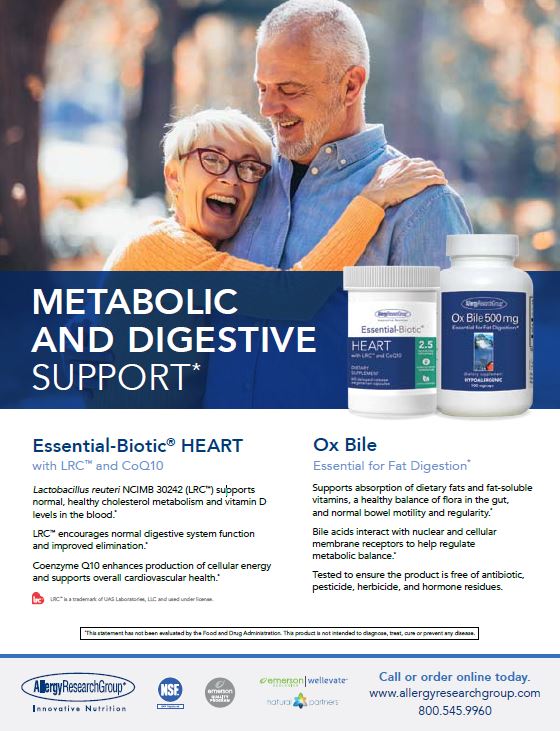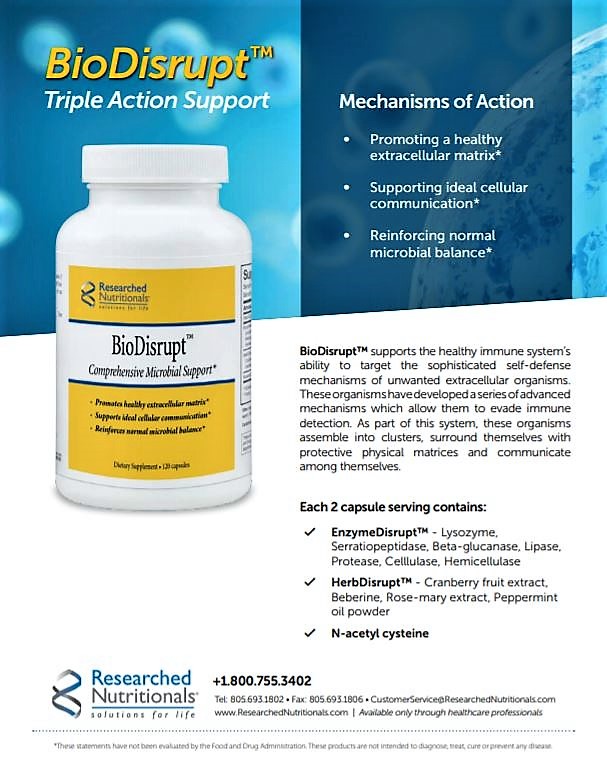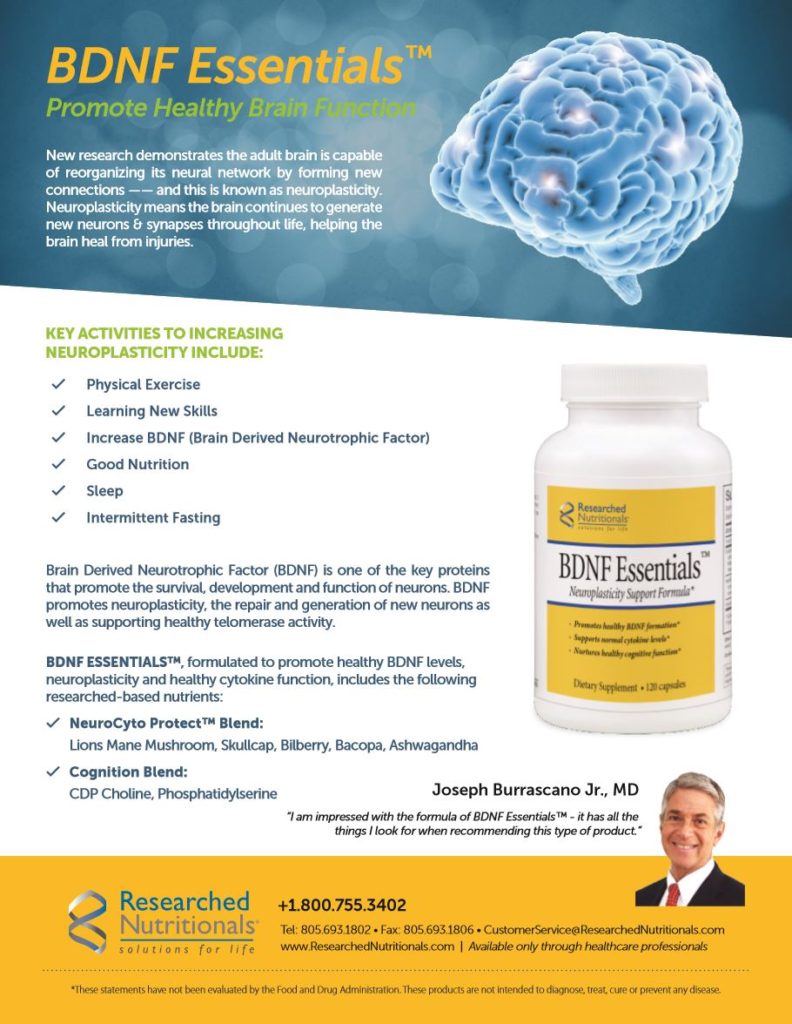by Alan R. Gaby, MD
Autism is a developmental disorder that begins before the age of three years. Manifestations may include abnormalities of communication and social interaction; repetitive, restricted, and self-injurious behaviors; intellectual disability; and severely limited activities and interests. Autism is one of the more severe forms of a group of disorders known as autism spectrum disorders, which include pervasive developmental disorder and Asperger syndrome (a subset of pervasive developmental disorder). The cause of autism is not known, but abnormalities of cellular architecture in several areas of the brain, as well as various biochemical abnormalities, have been found in some patients. A growing body of evidence suggests that dietary modifications and nutritional supplements can be beneficial in the treatment of autism.
Food Allergy/Sensitivity
Numerous investigators have observed that food sensitivity is a contributing factor in some cases of autism.1-6 Gluten and casein (a cow’s milk protein) were by far the most commonly implicated offending substances, but other foods or other substances in certain foods (i.e. phenolics) were found to be involved as well. While some of the adverse reactions to foods in autistic children are probably true allergic reactions, some of the reactions to gluten and casein may be non-allergy-mediated. Peptides derived from the digestion of wheat gluten and casein have opioid activity,7 and it has been suggested that these opioid peptides adversely affect the behavior of autistic children.8
Folinic Acid
Cerebral folate deficiency is defined as any neuropsychiatric condition associated with low cerebrospinal fluid (CSF) levels of 5-methyltetrahydrofolate (5-MTHF; the active form of folate in CSF), in association with normal folate status and normal folate metabolism outside the central nervous system. Cerebral folate deficiency is common among children with autism spectrum disorders, and it appears to be caused in most cases by the production of autoantibodies that block the receptor involved in transporting folate across the blood-brain barrier (folate receptor alpha [FRα]). Folinic acid can bypass autoantibody-blocked folate receptors and enter the CSF by a different mechanism,9 where it is converted to 5-MTHF. In uncontrolled trials, supplementation with folinic acid (such as 1-2 mg per kg of body weight per day; maximum, 50 mg per day) frequently resulted in clinical improvement in children with autism spectrum disorders who had FRα autoantibodies, low CSF concentrations of 5-MTHF, or both.10,11
Folinic Acid Combined with Other Nutrients
Other factors thought to play a role in the pathogenesis of autism are increased oxidative stress and mitochondrial dysfunction. These abnormalities may result in part from deficiencies of antioxidant nutrients and nutrients that play a role in mitochondrial function. Many autistic children have nutritional deficiencies as a result of feeding problems, such as restricting their diet to a very narrow range of foods. Identifying and treating these deficiencies may improve outcomes beyond what can be achieved with folinic acid alone.
In a new study 82 autistic children (mean age, 4.4 years) underwent laboratory tests for FRα autoantibodies, as well as the levels of various vitamins, minerals, and coenzyme Q10.12 Patients positive for FRα autoantibodies were treated with folinic acid (0.5-1.0 mg per kg per day). If no improvement was seen after six months, the dosage could be increased to 2 mg per kg per day, to a maximum of 50 mg per day. In addition, nutritional supplements were given if deficiencies were identified. Laboratory tests were repeated every three-to-four months, and the patients were treated for a total of two years. Eighty-four similar autistic children whose families did not agree to participate in this program served as controls. Outcomes were assessed by the change in the Childhood Autism Rating Scale (CARS) score. The CARS is a 15-item rating scale, with scores ranging from 15 to 60. A score below 30 indicates the absence of sufficient signs and symptoms to diagnose autism. Scores of 30 to 36.5 indicate mild-to-moderate autism, and scores of 37 to 60 indicate severe autism.
Seventy-six percent of the children were positive for FRα autoantibodies. Nutritional deficiencies that were identified included vitamin A (66% of patients), vitamin D (62%), folate (18%), iron (11%), selenium (9%), coenzyme Q10 (7%), zinc (5%), vitamin C (4%), and vitamin E (4%). In the group as whole, the mean CARS score improved from severe at baseline (41.3) to mild-to-moderate (34.4; p < 0.0001) after two years. Seventeen of 82 children (20.7%) achieved complete recovery (CARS score less than 30). The children who did not have FRα antibodies improved after correction of their nutritional deficiencies (18% of those children did receive folinic acid [0.5 mg per kg per day] to treat folate deficiency). In the children who were negative for FRα autoantibodies, the mean CARS score decreased from 42.1 at baseline to 33.9 after two years (a similar degree of improvement to that seen in children with FRα autoantibodies). Among the 84 patients in the control group, the mean baseline CARS score was similar in each of the age categories (1, 2, 3, 4, 5, or ≥ 6 years). This, according to the authors, suggests that autism severity does not decrease spontaneously as children get older. However, the authors assessed only baseline CARS scores in the control group and did not retest them after two years.
One could argue that this was not really a controlled trial because it did not compare the improvement in the treatment group with that in the control group. There might be fundamental differences between families who participate in a treatment program and those who decline to participate; and some of these differences might predict better outcomes. In addition, compliance with a treatment per se has been shown to result in beneficial effects, even if the treatment is a placebo.13 However, while we might reasonably call this new study an uncontrolled trial, the results are still impressive. On average, children improved from severe to mild-to-moderate, and one-fifth of the children no longer fit the diagnostic criteria for autism. Of note, the study did not test for possible deficiencies of magnesium, riboflavin, and vitamin B3, all of which play a role in mitochondrial function. A more comprehensive approach might further increase the benefits reported in this study.
An internet search revealed that one commercial laboratory (Iliad Neurosciences, Inc.)14 is offering the serum FRα autoantibody test for $295.
Alan R. Gaby, MD
References
- Knivsberg AM, et al. Dietary intervention in autistic syndromes. Brain Dysfunct. 1990;3:315- 327.
- Lucarelli S, et al. Food allergy and infantile autism. Panminerva Med. 1995;37:137-141.
- Ber A. Neutralization of phenolic (aromatic) food compounds in a holistic general practice. J Orthomolec Psychiatry. 1983;12:283-291.
- Pennesi CM, Klein LC. Effectiveness of the gluten-free, casein-free diet for children diagnosed with autism spectrum disorder: based on parental report. Nutr Neurosci. 2012;15:85- 91.
- Whiteley P, et al. The ScanBrit randomised, controlled, single-blind study of a gluten- and casein-free dietary intervention for children with autism spectrum disorders. Nutr Neurosci. 2010;13:87-100.
- Hsu CL, et al. The effects of a gluten and casein-free diet in children with autism: a case report. Chang Gung Med J. 2009;32:459-465.
- Zioudrou C, et al. Opioid peptides derived from food proteins. The exorphins. J Biol Chem. 1979;254:2446-2449.
- Knivsberg AM, et al. Reports on dietary intervention in autistic disorders. Nutr Neurosci. 2001;4:25-37.
- Ramaekers VT, et al. Autoantibodies to folate receptors in the cerebral folate deficiency syndrome. N Engl J Med. 2005;352:1985-91.
- Frye RE, et al. Cerebral folate receptor autoantibodies in autism spectrum disorder. Mol Psychiatry. 2013;18:369-81.
- Ramaekers VT, et al. Folate receptor autoimmunity and cerebral folate deficiency in low- functioning autism with neurological deficits. Neuropediatrics. 2007;38:276-81.
- Ramaekers VT, et al. Improving outcome in infantile autism with folate receptor autoimmunity and nutritional derangements: a self-controlled trial. Autism Res Treat. 2019;2019:7486431.
- Petitti DB. Coronary heart disease and estrogen replacement therapy. Can compliance bias explain the results of observational studies? Ann Epidemiol. 1994;4:115-118.
- iliadneuro.com. Accessed November 15, 2019.








